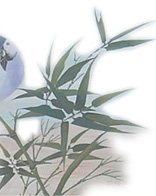|
Along with the opening of China, more and more Chinese people, mainly the young people start to celebrate ValentineвАЩs Day as Westerners do. Also, many companies pay more attention to the characteristics and psychology of the young people and we do not arrange any work in the ValentineвАЩs Day's night as long as possible.
I had edited something to show you how to say вАЬValentine's Day" and "I Love You" In Chinese in the Valentine's Day in 2006 and hope it will be some help to you to learn Chinese.
--Shirley Zhang
Feb 14, 2009 in the USA
 LISTEN TO TEXT LISTEN TO TEXT
 Hi, friends, it is Valentine's Day on Thursday Feb 14th so I have written out a few sentences to show you how to talk about Love in Chinese. Hi, friends, it is Valentine's Day on Thursday Feb 14th so I have written out a few sentences to show you how to talk about Love in Chinese.
Also, I would like to show you how to ask a question in Chinese.
SENTENCES ABOUT VALENTINE'S DAY AND LOVE:
Please hit any Chinese character that you need help with to see its Chinese pinyin, pronunciation and meaning and then follow me to read it.
No. 078: -- дљ†дїђињЗжГЕдЇЇиКВеРЧпЉЯ
-- жШѓзЪДпЉМжИСдїђињЗгАВ
-- Do you celebrate Valentine's Day?
-- Yes, we do.
No. 079: -- дЄ≠еЫљдЇЇйАБзОЂзС∞зїЩдїЦдїђзЪДжБЛдЇЇеРЧпЉЯ
-- жШѓзЪДпЉМдЄАдЇЫдЄ≠еЫљдЇЇйАБгАВ
-- Do the Chinese send roses to their lovers?
-- Yes, some Chinese poeple do. :-)
No.081: -- жЬАеЄЄиІБзЪДжГЕдЇЇиКВз§ЉзЙ©жШѓдїАдєИпЉЯ
-- зЇҐзОЂзС∞еТМеЈІеЕЛеКЫгАВ
-- What is the most common gift for Valentine's Day?
-- Red roses and chocolate. :-)
No.082: -- жАОж†ЈзФ®дЄ≠еЫљиѓЭиѓівАЬI love youвАЭ?
-- дљ†еПѓдї•иѓівАЬжИСзИ±дљ†вАЭгАВ
-- How do you say "I Love You" in Chinese?
-- You can say "W«Т Ài Nĭ".
CHINESE GRAMMAR:
You can see from these sentences that, in Chinese, question sentences take the same form whether they are for general questions or specific questions. A question is constructed from a statement by the addition of an auxiliary word and a question mark to the end of the statement; the word order of the statement is not changed as it is in English. In spoken Chinese it is important to raise the tone of the voice at the end of the sentence to indicate a question as you do in English. :-)
So the main points are:
1. In the Chinese language, statement sentences and question sentences have the same grammatical form.
2. The main sentence form in the Chinese language is:
subject + verb + object
3. The Chinese language uses an auxiliary word and a question mark to indicate a question, and in spoken Chinese, a rising tone.
I hope it works for you.
 If you have any questions, comments or suggestions, please write to shirley@ebridge.cn , or Yiping007@MissouriState.edu.You are also welcome to publish your opinions in Forum For Friends. :-) If you have any questions, comments or suggestions, please write to shirley@ebridge.cn , or Yiping007@MissouriState.edu.You are also welcome to publish your opinions in Forum For Friends. :-)
--Shirley Zhang
Written and Recorded On Sun, Feb 12, 2006
|

